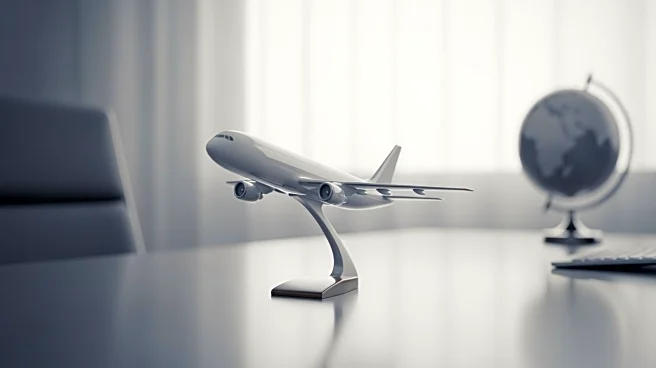What's Happening?
United Airlines has announced plans to reduce its corporate workforce by 4% in 2026, following a similar reduction this year. During a third-quarter earnings call, CFO Mike Leskinen emphasized the use
of AI and process changes to enhance efficiency within the company's headquarters management team. The airline is focusing on technological upgrades to improve operations and maintenance, aligning with industry trends towards AI-driven efficiency.
Why It's Important?
The workforce reduction at United Airlines reflects broader industry trends towards automation and efficiency improvements. By leveraging AI, United aims to streamline operations and reduce costs, which is crucial in maintaining competitiveness in the airline industry. This move may influence other airlines to adopt similar strategies, potentially leading to job cuts and shifts in workforce dynamics across the sector. The emphasis on AI highlights the growing importance of technology in driving operational efficiency and cost management.
What's Next?
As United Airlines continues to implement AI-driven process improvements, the airline may explore further technological advancements to enhance efficiency. The industry could see increased adoption of AI and automation, leading to changes in workforce requirements and operational strategies. Stakeholders, including employees and unions, may respond to these changes with calls for retraining and adaptation to new technologies.
Beyond the Headlines
The shift towards AI and automation in the airline industry raises ethical and workforce implications. The reduction in corporate jobs may lead to concerns about job security and the need for reskilling. Additionally, the reliance on AI for efficiency improvements highlights the potential for technological disruptions and the need for regulatory frameworks to address these changes.








